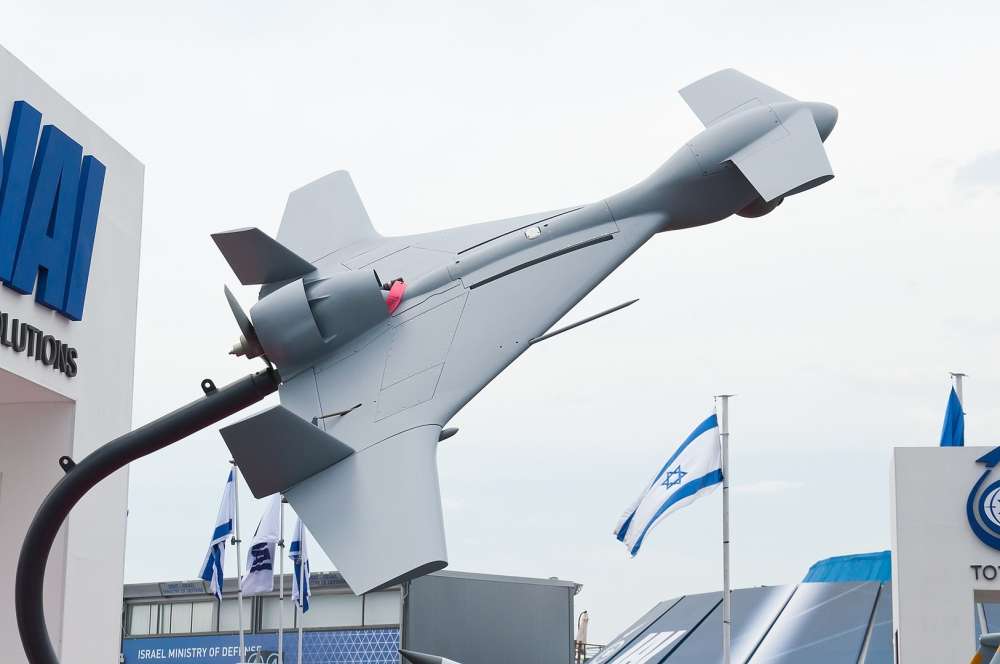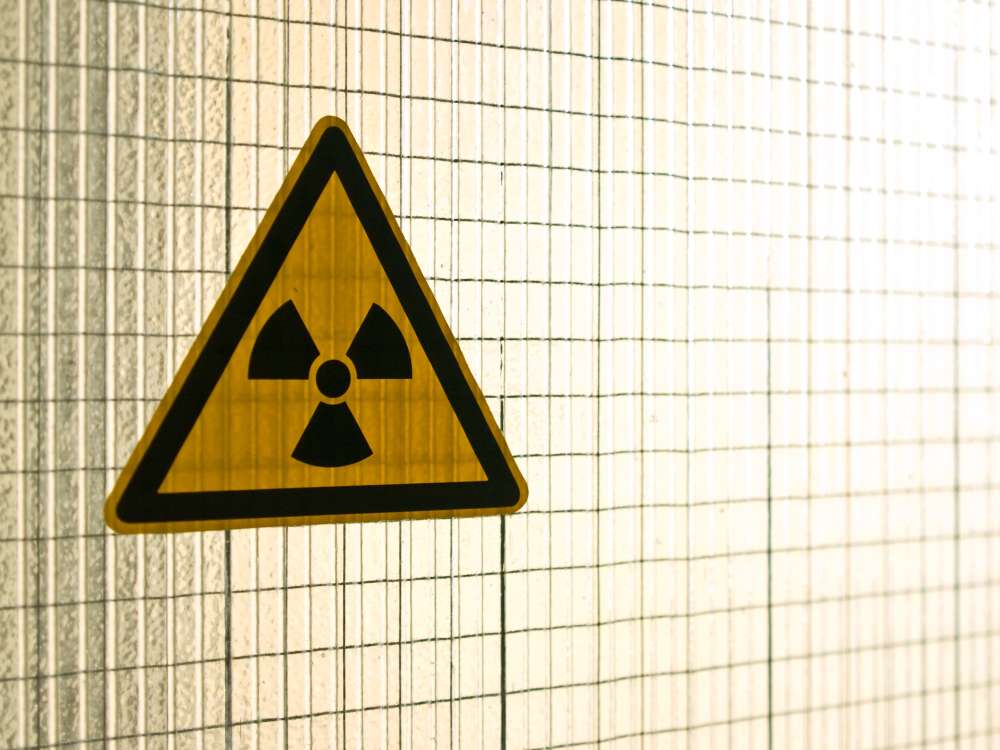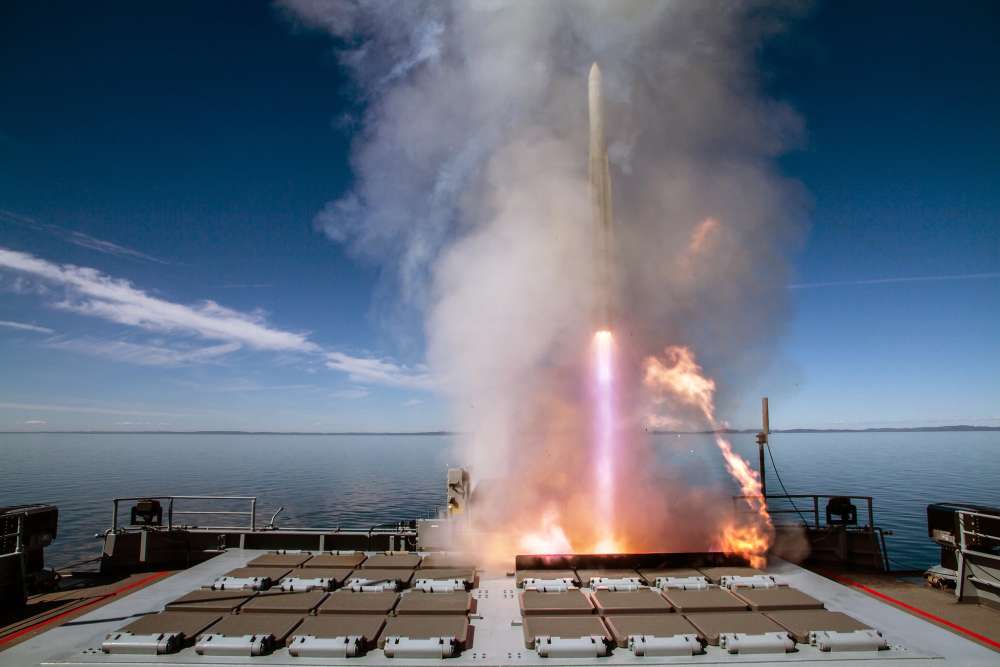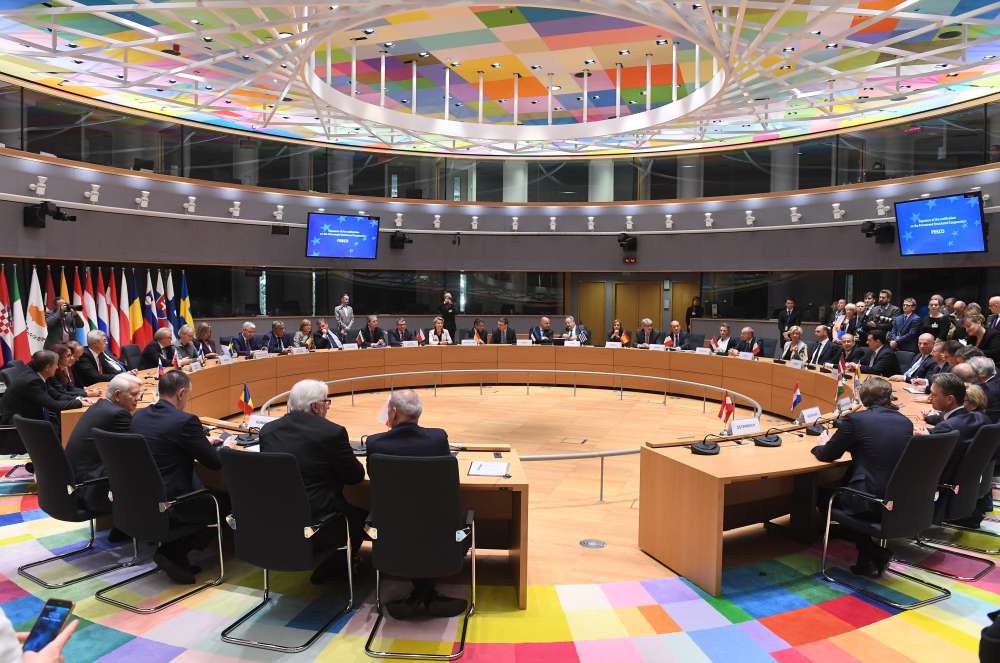Germany Needs a National Directive on Autonomy in Weapon Systems

The IAI Harop loitering munition displayed at the Paris Air Show 2013. (Julian Herzog /Wikimedia Commons)
The international effort to regulate autonomy in weapon systems via the United Nations in Geneva is stuck. It is time for Germany to develop and implement its own national directive – and foster regulatory processes in new fora.
Over the last decade, a lot of ink has been spilled and many discussions have happened on the topic of autonomy in weapon systems (AWS), or what is referred to as “Lethal Autonomous Weapon Systems” (LAWS) in United Nations parlance. The phenomenon, however, is neither as new nor necessarily as problematic as some make it out to be. In fact, weapons that select and engage targets without human intervention have been in use since at least the 1980s, albeit almost exclusively to defend against incoming munitions. The Patriot missile defense system or the Phalanx fast-firing gun on navy ships are two examples, and both already demonstrate the benefit of being able to fire at targets at machine speed for defensive purposes.
What is new, and what gives rise to serious ethical, legal and strategic concerns, is the employment of weapon autonomy – the automation of “critical functions” of the targeting cycle, that is, delegating to a machine which targets are selected and engaged – in other military contexts and a much wider range of targets, including human beings. Imagine a swarm of drones using machine-learning algorithms to select and engage declared enemies without approval or oversight by a human operator: this would be one example of autonomy in weapon systems.
Key Points:
- The National Security Strategy should jumpstart a domestic process of developing and implementing a national directive on the responsible use of autonomy in weapon systems in the German armed forces.
- Germany’s National Security Strategy should inform Berlin’s efforts to continue and intensify multilateral regulatory action at the international level within the United Nations framework.
- The German government should use the security strategy to encourage and explore new fora and innovative approaches for standard-setting and responsible uses of weapon autonomy.
Time to Shift Gears
A few obvious concerns come to mind: for one, military combat is a complex affair, and the rules of international humanitarian law are context-dependent and meant for humans to interpret and apply appropriately – something that machines are simply incapable of. Furthermore, the strategically relevant implication of weapon autonomy – swiftness – is that it will be impossible for humans to intervene as a circuit breaker if operations at machine speed go awry. In other words, weapon autonomy, if deployed unregulated and across the board, runs the risk of producing unpredictable outcomes, with a real possibility of rapid and unwanted escalations from crises to wars or, within existing armed conflicts, to higher levels of violence.
» Weapon autonomy, if deployed unregulated and across the board, runs the risk of producing unpredictable outcomes. «
The question of how to regulate autonomy in weapon systems has had the international community deeply concerned since at least 2014, the year in which UN discussions at the Convention on Certain Conventional Weapons (CCW) in Geneva began. To this day, Germany maintains that the CCW is the right forum to seek regulation for weapons that operate autonomously in their critical functions. Yet ever since 2019, when CCW state parties agreed on the UN Guiding Principles on the subject matter, which mainly just reaffirmed existing international law, nothing new has come out of the CCW. Russia’s brutal war of aggression against Ukraine has further aggravated tensions in the forum and made consensus even more unlikely.
So it is time for Germany to shift gears. There is no more time to keep waiting for the UN to produce tangible results in terms of regulation. Instead, as the first step in a more promising direction, Germany should develop and implement a national directive on the responsible use of weapon autonomy by its own armed forces. Secondly, and in parallel, the German government should continue its efforts to lobby for better regulation through ongoing discussions at the UN level while at the same time exploring new initiatives and debates in other regulatory fora. The upcoming German National Security Strategy is the ideal starting point for taking those three steps.
Develop a National Directive on the Responsible Use of Autonomy in Weapon Systems
In order to substantiate its regulatory efforts at the international stage, Germany needs and must implement a national directive on the responsible use of autonomy in weapon systems. Other states are already ahead of Berlin in this regard. Germany’s close ally France, for example, has adopted the 2021 position of the French national ethic committee on LAWS as its official directive. The United States implemented their Directive 3000.09 back in 2012 and are currently revising it – for the third time. The United Kingdom published its own strategy on “AI-enabled capability in Defence” in June this year.
In contrast, those interested in Germany’s approach to AWS are left with a few scattered individual statements, including a sparse sentence or two in the last three consecutive coalition treaties and Germany’s position papers in the UN’s Group of Governmental Experts (GGE) on LAWS UN Group of Governmental Experts – if those can actually be found on the UN website. But without a proper state-of-the-art strategy document to point to, Germany risks being misinterpreted domestically as well as internationally. Consequently, Germany needs to put into writing what, by now, is a widely shared national and international consensus called the “two-tier approach” to regulating weapon autonomy: one, Bundeswehr weapon systems can (continue to) use autonomy but are to remain under meaningful human control, that is, “control by design” and “control in use,” depending on the operational context. Secondly, weapon systems that are not susceptible to meaningful human control as well as those targeting human beings by using biometric target profiles will not be used by the German armed forces, as recommended by the International Committee of the Red Cross.
» Weapon systems that are not susceptible to meaningful human control as well as those targeting human beings by using biometric target profiles should not be used by the German armed forces. «
Continue Multilateral Regulation Efforts at UN Level
Of course, Germany has to uphold and intensify its contributions to the multilateral regulation efforts in the CCW’s GGE. Although it is highly unlikely that the group will produce a meaningful outcome anytime soon, it would be a disastrous sign for Berlin to turn its back on regulatory efforts in the only multilateral forum that has been dealing with the issue on a constant basis. And in fairness, the CCW has made some headway, despite the justified criticism it has been drawing for a while – for instance, in terms of producing conceptual convergence amongst its state parties. In addition, ending the UN talks in Geneva would constitute a de facto victory for Russia and its constant attempts to block any multilateral progress on the issue. The CCW is and remains an “appropriate forum,” as many delegations are keen to highlight, not least because it is open to all 125 contracting parties to the CCW as well as civil society organizations.
However, and more importantly, the CCW is not the only appropriate forum. In October, for instance, the issue of autonomous weapons regulation was jointly raised in the First Committee of the UN General Assembly by a group of 70 states, including Germany.
A two-tiered approach should thus also become Germany’s strategy for achieving meaningful international regulation: maintain discussions within the UN framework while empowering efforts in other, more agile fora that are not hamstrung by Russia acting as a spoiler state.
» Maintain discussions within the UN framework while empowering efforts in other, more agile fora that are not hamstrung by Russia acting as a spoiler state. «
Chart a Path Toward New Regulatory Solutions
The current government’s coalition agreement demands that Germany “actively promote” a prohibition of weapon systems “that are completely removed from human control.” Merely accepting the status quo is simply not enough to fulfill this goal.
Equipped with a national position on AWS, Germany could initiate or deepen discussions on the issue not only within the UN framework but also in other international organizations – such as the EU (in the context of the Common Foreign and Security Policy) and NATO (through the organization’s working group on controllability of intelligent systems) – and explore new approaches toward standard-setting for responsible uses of weapon autonomy. For this purpose, Germany could expand on its joined effort with France regarding an Outline for a Normative and Operational Framework on Emerging Technologies in the Area of LAWS. Stand-alone processes championed by individual states or groups of states – such as those that led to the treaties on anti-personnel landmines and cluster munitions in the past – should also not be ruled out as a means to achieve at least some progress and wider international agreement.
Frank Sauer
Head of Research, Metis Institute for Strategy and Foresight, Bundeswehr University Munich
Vanessa Vohs
Researcher, AI For Defence Project, Bundeswehr University Munich
Keep on reading

Germany Must Adapt Its Mindset on Nuclear Weapons
Russia’s war against Ukraine has stirred Germany’s nuclear debate. Now is the time for Berlin to rethink its nuclear policy – and the National Security Strategy should lay the groundwork.

Deutschland als Grundpfeiler europäischer Verteidigung
Der Ostseeraum ist das Brennglas der angespannten Beziehungen zwischen Russland und der NATO. Als koordinierender Verantwortungsträger sollte die Bundeswehr hier Führung übernehmen. Bestens dafür geeignet: Die Deutsche Marine.
